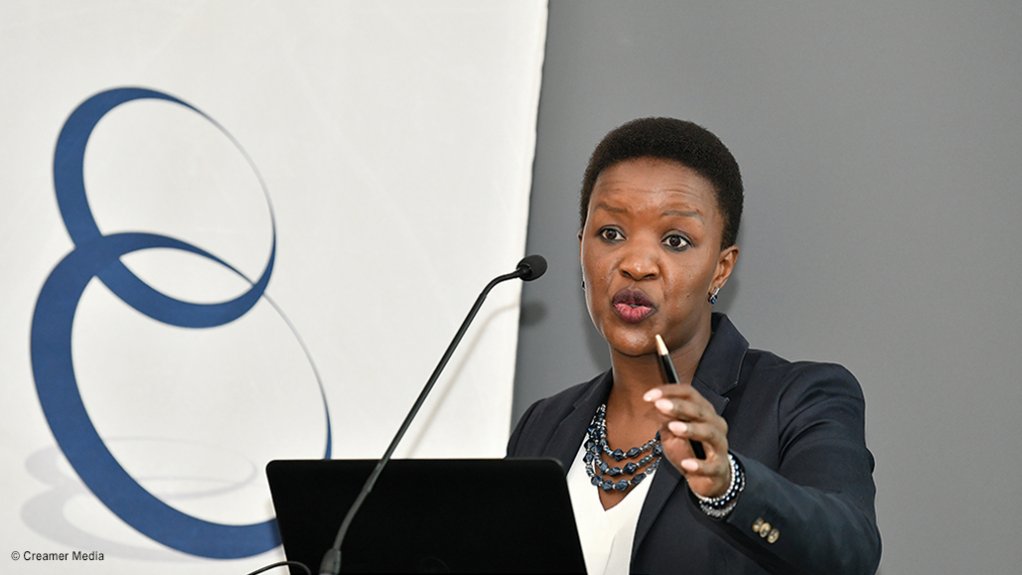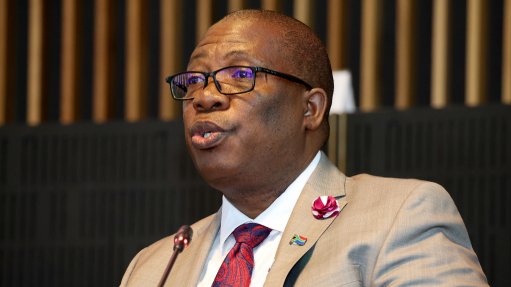ANC’s proposed solutions to unemployment frustrating, says BLSA
In her latest weekly newsletter, published on January 31, industry association Business Leadership South Africa CEO Busi Mavuso said she was frustrated with the solutions proposed by the African National Congress (ANC) to tackle South Africa’s unemployment crisis.
Unemployment in South Africa is at its highest-ever levels, with the latest Quarterly Labour Force Survey putting the overall unemployment rate at nearly 35%. Youth unemployment is at 50% for young people aged between 18 to 34.
In President Cyril Ramaphosa’s closing remarks to the ANC National Executive Committee (NEC) Lekgotla made on January 23, he said the “absolutely necessary” solution to unemployment would be to build a new and resilient social compact to decisively address unemployment and poverty. The aim of the compact would be to build an inclusive economy that brings a change in the quality of life for all South Africans.
“An effective social compact will require give and take by all parties, as all parties need to contribute in the cause of national development. In addition to this, it will be necessary to identify trade-offs that social partners will need to act on,” Ramaphosa said.
Moreover, he called on businesses to make real, verifiable commitments to expand investment and to support localisation and black empowerment. Moreover, labour and communities would need to commit to improving levels of productivity, skills and entrepreneurship.
“We must be clear about the conditions under which businesses can employ more people, and I am afraid that the lekgotla statement displayed confusion about this,” Mavuso lamented.
She said that, when one considers how businesses are incentivised to achieve certain public policy objectives, one should be realistic.
“We cannot treat business as if it’s some single entity we can negotiate with and appeal to their social consciences. We must set up the environment such that we get the outcome we want,” she said.
Mavuso said that, instead of calling on businesses to employ more people, the critical question government should ask is: why is it that businesses are not investing, growing and employing more people?
“The stark reality is that South African business is not nearly as profitable as it needs to be to grow,” she stated.
The latest figures from research organisation Statistics South Africa show that, across the board, company profits fell in 2020 – largely because of the pandemic. Net profits were 86% lower in 2020 than in 2019.
While Covid-19 might be blamed for poor economic performance in 2020, Mavuso pointed out, the longer-term trend was “sobering”, highlighting that business profit margins have been falling since 2008.
In 2019, after-tax profit margins across the economy were at 2%, reflecting a steady decline from 2008 when they were at 6%. In 2020, profit margins were only 0.3%.
Mavuso noted that such weak profitability had many consequences. Firstly, businesses paid far less corporate tax. Secondly, reduced margins meant that further investment was hamstrung.
“Without profits there are no savings to finance investment. But also, without profits, there are no returns on that investment, so [businesses] can’t borrow to fund investment either,” Mavuso said, adding that this was the reality that she wished the ANC NEC Lekgotla had engaged with.
“If we are to address the unemployment crisis it has to be by changing the maths for business. [Businesses] must see opportunities to generate returns that are commensurate with the risks they must take. It is only then that they will be willing to take on the risks of borrowing or investing their savings. It is only then that they will be able to grow and ultimately employ more people,” she explained.
Mavuso insisted that reducing unemployment cannot be achieved by compacting, but that it can only be achieved by addressing the real-world challenges businesses face in trying to generate profits.
These challenges include the high cost and unreliability of energy; the inefficiency and cost of ports and transport networks; the high cost of broadband Internet and telecommunications; the quality of skills that employees bring from the education system; the safety and security situation that businesses must operate in; and the reliability of local government services.
“There is much that can be done to address each of these and many other important issues. Organised business is certainly willing and able to engage with all social partners to find ways to do so. But this cannot be done through a compact based on impossible expectations of how business works. That will get us nowhere,” Mavuso concluded.
Article Enquiry
Email Article
Save Article
Feedback
To advertise email advertising@creamermedia.co.za or click here
Announcements
What's On
Subscribe to improve your user experience...
Option 1 (equivalent of R125 a month):
Receive a weekly copy of Creamer Media's Engineering News & Mining Weekly magazine
(print copy for those in South Africa and e-magazine for those outside of South Africa)
Receive daily email newsletters
Access to full search results
Access archive of magazine back copies
Access to Projects in Progress
Access to ONE Research Report of your choice in PDF format
Option 2 (equivalent of R375 a month):
All benefits from Option 1
PLUS
Access to Creamer Media's Research Channel Africa for ALL Research Reports, in PDF format, on various industrial and mining sectors
including Electricity; Water; Energy Transition; Hydrogen; Roads, Rail and Ports; Coal; Gold; Platinum; Battery Metals; etc.
Already a subscriber?
Forgotten your password?
Receive weekly copy of Creamer Media's Engineering News & Mining Weekly magazine (print copy for those in South Africa and e-magazine for those outside of South Africa)
➕
Recieve daily email newsletters
➕
Access to full search results
➕
Access archive of magazine back copies
➕
Access to Projects in Progress
➕
Access to ONE Research Report of your choice in PDF format
RESEARCH CHANNEL AFRICA
R4500 (equivalent of R375 a month)
SUBSCRIBEAll benefits from Option 1
➕
Access to Creamer Media's Research Channel Africa for ALL Research Reports on various industrial and mining sectors, in PDF format, including on:
Electricity
➕
Water
➕
Energy Transition
➕
Hydrogen
➕
Roads, Rail and Ports
➕
Coal
➕
Gold
➕
Platinum
➕
Battery Metals
➕
etc.
Receive all benefits from Option 1 or Option 2 delivered to numerous people at your company
➕
Multiple User names and Passwords for simultaneous log-ins
➕
Intranet integration access to all in your organisation





















